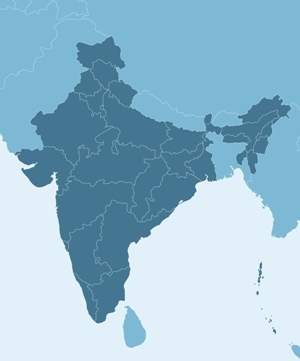
The bulk of HNW wealth in India is currently held in execution-only mandates. However, GlobalData’s Wealth in India: HNW investor 2017 report says this is expected to change – with demand particularly pronounced for advisory mandates.
The report says while demand for all types of asset management services is on the rise, advisory asset management has enduring appeal, and demand for it in India will outpace other approaches.
For example, asked about the level of demand from HNW clients in 2016, 61.1%, the highest, said there was a very strong demand for advisory asset management.
Meanwhile, only 22.4% said there was a very strong demand for execution-only asset management.
Advisory Mandates
How well do you really know your competitors?
Access the most comprehensive Company Profiles on the market, powered by GlobalData. Save hours of research. Gain competitive edge.

Thank you!
Your download email will arrive shortly
Not ready to buy yet? Download a free sample
We are confident about the unique quality of our Company Profiles. However, we want you to make the most beneficial decision for your business, so we offer a free sample that you can download by submitting the below form
By GlobalDataSo why is a country that has historically been so comfortable managing its wealth with little input from wealth managers looking to give up some control?
Vibhu Anand, senior private banker at ICICI in New Delhi, tells Private Banker International: “Advisory mandates in India are gaining a lot of momentum…because [with] the ease of access to relevant information, clients are better and well informed. They [clients] appreciate being kept abreast regarding market developments relevant to them and their holdings enabling them to take well-informed decisions.
“Hence advisory mandates serviced by qualified professionals and experts are going to be in greater demand as the market expands further.”
The expectation of better returns is driving demand for advisory asset management as Indian HNW individuals are increasingly looking to gain an informed opinion on financial markets to maximise their chances.
Wealth managers can expect high pressure when it comes to providing advisory services because clients will switch to financial advisors with a better track record.
Some 61.1% of wealth managers surveyed during 2016 in India said demand for advisory asset management would rise, compared to 39.6% for execution-only asset management and 41.4% for automated investment services, the report says.
Developing strong advisory relationships to gain trust will be paramount.
However, it must be stressed that while advisory mandates are projected to have the greatest demand, a large share of HNW wealth will continue to remain in execution-only platforms.
Another reason for maintaining execution-only services, despite the lower margins they offer is because they are useful when serving the UNHW family office, and for those who have a deep knowledge of financial markets, but want to keep costs at a minimum.
Demand for discretionary asset management is likely to remain muted. Only 7.5% of wealth managers in India think that demand for this type of mandate will rise.
Rising equities allocation
The importance real estate, bonds and particularly physical gold have as sources of wealth investments is no secret in India. Wealth managers can expect a rise in equity investments.
Loyalty to equity and bonds will bring more assets under management into active management. This reflects an upward trend in stock market performance since 2014, compared to low interest rates and volatile commodities.
A growing economy has kept local stock markets buoyant, which will also help trigger demand for equities. Indian investors are looking for capital growth opportunities while still being able to shield themselves from inflation. Wealth managers find it easier to sell equity funds to the HNW community compared to their regional peers, and compared to cash and property asset classes.
The demand for bonds will continue the bullish trend that was observed in India at the start of 2017. In the beginning of 2017, Indian bonds surged with the 10-year bond reaching its highest yield since 2013. Reforms instituted by the Securities and Exchange Board of India (SEBI) opened up India’s bond market to foreign investors.
Furthermore, other reforms that have helped boost the demand for bonds, including using corporate bonds as collateral for the RBI in its overnight repo facilities. Issuing offshore rupee denominated bonds called Masala Bonds is another factor keeping the Indian demand for bonds high.
Indian investors’ demand for automated services is expected to sharply rise in the coming 12 months. In order for wealth managers to monetise on this, they must be able to integrate fintech solutions into their propositions.
Even though automated services will rise in the next few months, at present, India lacks a classic exchange traded fund robo-adviser.
However other prominent online portals exist such as FundsIndia, which can give mutual fund recommendations via its robo-adviser Money Mitr or through its actual wealth managers.
It is likely that the wealth management industry in India is waiting for the local ETF market to develop further before launching a more conventional robo-adviser service.
Even though the IT industry is the second biggest source of HNW wealth, the sector is struggling to recruit highly specialised talent. Indian trade body NASSCOM said that the industry is moving towards data analytics and connected devices.
According to the body, this implies fewer jobs being employed in the software management industry, which was a previous factor fuelling growth of jobs. Therefore, wealth managers should target data analytics and connected devices sector when exploring new opportunities.
The Bombay Stock Exchange introduced mobile trading to India in 2010. Because India is the world’s fastest growing market for mobile phone-based stock trading, all wealth managers should be providing mobile trading solutions. The predicted increase in execution-only services also means demand for mobile apps will rise.
Financial planning demand
Demand for various types of financial planning is particularly acute in India. One reason for example is that Indian investors are known to put extra care into planning children’s education compared to regional peers.
Almost 80% of wealth managers in India anticipate an increase in demand for pension planning thanks to India’s fragmented pension system.
India also grants Person of Indian Origin (PIO) cards and Overseas Citizens of India (OCI) cards to Indian ex-patriates living abroad upon request.
The basic perks of holding any of these cards is that Indians living abroad can benefit from visa-free travel and are granted the same civil rights as Indian residents.
Also several Indian descendants who live across the globe are relocating back to India.
UN data indicates that India has the world’s largest diaspora, with more than 16m Indians residing away from their homeland. While most of them live in the Middle East or Asia, a substantial Indian community is present in the UK, Canada and USA.
This opens up abundant opportunities for the wealth management industry.
This means that many Indians who retire in India after living abroad may seek professional advice for planning their pensions when it comes to having to transfer their pension contributions from abroad.
Wealth managers should partner with pension providers to grasp this client segment.
India is a country where wealth is typically earned through inheritance. There is a strong sense of family legacy behind business ownership. Given this importance Indians place on inheritance, wealth managers should emphasise the need for expertise.
Given the role family legacy has in business and entrepreneurship, wealth managers should also provide succession planning. This is likely to be a lucrative proposition for India’s sector as the issue of inheritance can often strand wealth for significantly long periods of time and decades in some extreme cases.
In 2015, India abolished the wealth tax, followed by a tax amnesty that took place in 2016.
As a result, several expatriates transferred their wealth from abroad to India. Both new and existing clients require professional guidance on tax related affairs.
This becomes important when it comes to protecting clients from having to pay domestic taxes that are not relevant to them.
In order for wealth managers to succeed in India, they need to:
- focus on providing greater advisory mandates in tandem with automated services.
- This is partly due to the importance IT plays in India’s wealth creation and due to recent tax changes in India.
- With several Indians in the process of moving back to their home, this presents a set of opportunities, both in terms of advising clients who are unfamiliar with India’s investment landscape as well as helping Indian expats integrate with the country’s regulatory landscape.
- Wealth managers should particularly target expat high net worth Indian individuals as they alone will account for a surge in demand for wealth planning.







